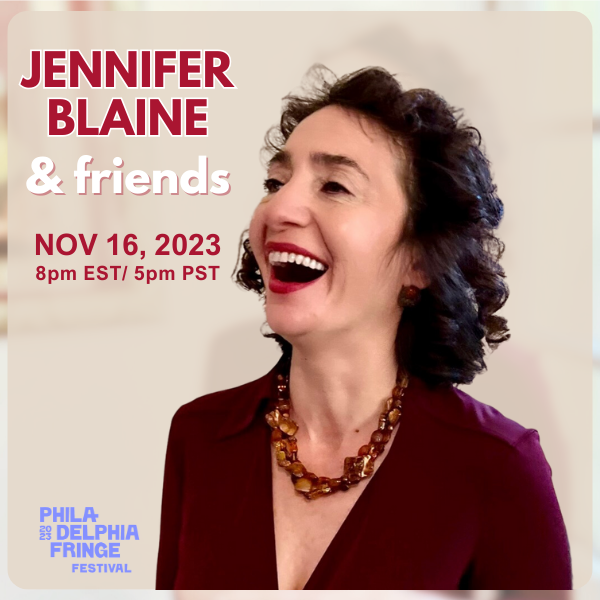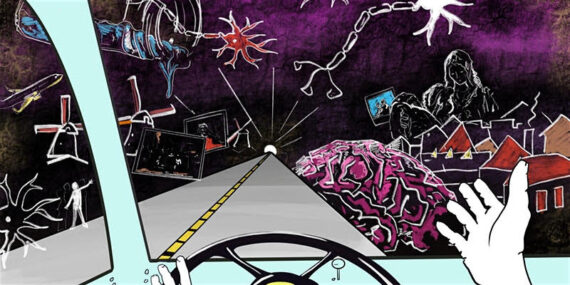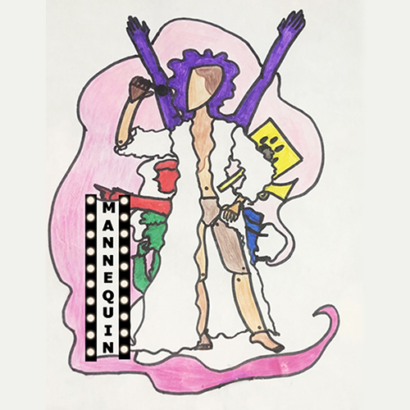Meg Zocco

I was just a freshman at Wesleyan University, but I wanted out. It made no sense. I loved WESLEYAN. I had been looking forward to being there for so long. Back at Stuyvesant HS my friend Danny Grant, who was a year ahead of me, returned from his visit there exclaiming that he knew that not only he but I would someday attend Wes. Fast forward to my early decision acceptance. Everything was set.
In my first semester I took physics, directed experiences in acting, Spanish Literature, and intro to sociology. I also signed up to be one of the student representatives on the EPC, the Educational Planning Council, which was comprised of tenured faculty, lifetime administrators and two student reps. There was one student rep. and I was the other. I was in over my head. I was expected to weigh in on policy at the EPC, and then in classes I was a guinea pig (actor) for scenes from classic American plays directed by juniors and seniors, read Latin American literature in Spanish, and was expected to understand physics on the college level. My head swirled. I chose all these things. They genuinely interested me. The only trouble was I could not find myself anywhere in there. I had been an A+ student at Stuy. But here at Wesleyan I was expected to engage because of my own genuine interest. The trouble was I had none.
Enter Meg Zocco. Meg Zocco was the Dean for the incoming Freshman class. I knew her from letters sent before I ever reached campus. But then face to face with her during summer orientation I learned she was there to assist me to get acclimated. She brought the singer songwriter Christine Lavin — whom I loved!— to perform for us at the Center for the Arts. She guided us into a circle and then had us sit down and feel the support of the person behind us. Meg and I would wave as we passed each other on High Street. I pretended I didn’t need her.
Trouble is I liked her. I was always curious about her. She was insightful and beautiful and a little edgy. She seemed to be deeply self respecting while also getting her job done. How did she do that?
And so one day, as I struggled to comprehend Isabel Allende’s Casa de Los Espiritus, I found myself waiting outside Dean Zocco’s door to grab what I thought would just be a few minutes of Meg’s time. But once she ushered me into her office, to sit in the heavy brown wooden furniture, I sunk into a deeper truth.
“I don’t want to be here anymore.” I blinked, shocked at my own admission. What was I saying? I loved WESLEYAN. I was passionate. I loved all my classes. I was directed by Dar Williams in a scene from ENDGAME by Samuel Beckett. I was in love with the people. I made lifelong friends with Andrew Boorstyn, Nikki Hubbard and my other housemates at Greenhouse the first day! My parents and I were captured in a picture on the cover of the guide for parents’ weekend. I was literally the cover girl for WESLEYAN.
“What is hard about being here?” Meg leaned in with zero shame or judgement.
“I love WESLEYAN, but I don’t know why I’m here. It makes no sense to me. I worked so hard to get here.”
“Maybe it’s not the right moment,” Meg offered. “Do you think you need something else?” Again, Meg left so much space. She waited.
“I can’t go home because my parents won’t let me just drop out. I need to have a plan. I need something. I don’t know what to do.”
And then, Meg Zocco gave me a life lesson. It is a life lesson that I have used with hundreds of coaching clients over the years since then. She said, “make a list of the reasons to leave and the reasons to stay. List all the pros and cons.” I did. “Now Jennifer, try the totality of each scenario on. Which is the one that feels right?”
And I sat there facing the two choices and I didn’t want to drop out of WESLEYAN, but I could see clearly for the first time I could not stay. I was 18 and had made my first life choice as a semi-adult.
“Sometimes it’s not clear which is the best choice to make, but we do the best we can to make the choice that we can live with,” Meg offered.
I felt relieved and terrified. Meg assured me I had actually figured out what to do.
“But my parents won’t approve of this,” I told her. “They will kill me.” I told her. “Not necessarily!” She winked.” Let me talk to them.” I don’t know what she said to reassure my parents that I was not completely irresponsible and to permit me to live another day. And I don’t know why in my memory they somehow instantaneously materialized on campus. I can picture them there, in Dean Zocco’s office, unhappily accepting my decision. Yes, they were disappointed. You can’t always have everything!
I proceeded to devise a plan. I found a job through the career planning center as an aide at Perkins School for the Blind (where Helen Keller studied) where I worked with deaf blind retarded children. I secured a job, housing, income, and time to better listen to who I was and what I needed. I saved my money and when I completed my internship, I headed to Aberdeen Scotland to be in the Leaveners theatre company and participate in an international theatre festival. Then I traipsed through Spain by myself to get closer to Unamuno and Lorca and all the other writers I had only studied in books. Come August I was ready to return to Wesleyan. I studied theatre, Spanish, and became a women’s studies major because I now could hear my true self and I really wanted to hear and tell women’s stories of how they changed their own and others’ lives. And I completed my degree in 3.5 years, so I somehow got my education discounted so at least I managed to get that bonus for my parents.
Meg Zocco. Does she know how much she changed my life? Does she know how much she helps every person she touches in the Wesleyan community? And how do we in turn touch countless other lives? She has moved through a variety of positions at Wes over the years, but 33 years later she is still there. Now in parent relations, working with parents of students, some who were once Wes students themselves. Is it even possible to measure the impact of all she has brought to these relationships? I am just one student out of a class of 700 in one of those years. She personally supported, counseled, and mentored me. She changed my life so I was able connect with and honor myself. And I know she’s done that for countless others.
Spilling The Milk
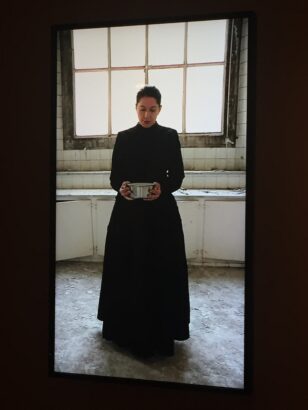
In June I was out in Detroit to give a presentation about how to resolve any conflict using the Karpman triangle. (You may think you don’t know what I am referring to, but you probably do. It’s when we recognize we are either playing the villain, rescuer, or victim in a conflict and with that awareness we free ourselves from being stuck in these roles.) Once I finished the power point, I had 3 hours before my flight home, so I secreted myself away to the Detroit Institute of Arts. I started with the Diego Rivera murals of the auto industry, caught some contemporary sculptures of the city skyline made from baseball bats, and made my way through the impressionists. While in the contemporary section I turned a corner and spied a Marina Abramovic video entitled “Spilling the Milk.” Here’s what a cool art publication had to say about it:
“In the Abramovic video, included in her widely acclaimed 2010 MoMA, New York, retrospective, the artist continues her earlier themes but places them within the tradition of seventeenth-century Dutch genre painting. A luminous window lights a glowing kitchen as Abramovic attempts to hold a brim-filled bowl of shimmering milk without spilling it. The video’s scene recalls the visual impression of works such as Vermeer’s The Milkmaid (1657) with its use of everyday subject matter to portray the intersection of sensuality and spirituality at the root of human experience. Yet the concentration and strength necessary to translate this moving image into the ideal, suspended stillness of a Vermeer painting tests the limits of the artist’s fortitude and the audience’s expectations.” — From Artweek.LA
As I studied her, people gathered on the bench opposite, and to either side of the screen. More kept pooling around the piece, illumined by the projection. It was literally a crowd favorite, the growing audience gathering to witness this milk carrying/spilling event. A mother and three children peered on. “Is she actually moving? Or is it freeze framed?” the girl asked.” I think she’s going to drop it!” one of the boys predicted. “It’s just like that, isn’t it?” the mother confided to me. “Mothering. It takes everything not to drop it all.” Abramovic, the artist, peered into the milk in her bowl, willing herself to hold still, despite the demands of gravity. “Funny you should bring up mothering,” I leaned over and whispered to the woman. “She actually had a very difficult relationship with her mother. She wanted her mother’s attention, and rarely got it.”
We turned back to the video. What made it so compelling? We hoped she wouldn’t drop the bowl. We also wanted to see her drop the bowl! We hoped she would shatter the quietly oppressive domestic scene. This tiny drama pulled us all in for almost 13 minutes. It ended with extra sloshing from the bowl and then faded out to black. No clear climax or finality. “Is that it?” someone said walking away.
I stayed, watched the piece again, and took this picture. The crowd dispersed and a new cycle of questioning eyes gazed at the screen. Marina Abramovic never won her mother’s approval and attention the way she wanted it as a girl, but she had won the world’s.
Sometimes You Need A Good Shove

When I was 17 I competed in the “Macbeth” contest on Broadway. High school students from all around New York City participated, seeking to best all others in Act 2 Scene 2 of the Scottish Play. My scene partner, Phillip Baskerville, and I advanced, round after round, until we found ourselves standing onstage to compete in the finals at the Mark Hellinger Theatre. The judges were the producers of Macbeth, currently playing in this Broadway theatre, as well as the inimitable Glenda Jackson who was starring as Lady Macbeth.
Shortly before our turn, I became immobilized with fear. My heart racing was nothing new to me, but frozen legs were a first. What was I going to do? “Phillip! … ..You have to push me onstage,” I pleaded. With a great shove Phillip succeeded in launching me onstage and into my opening monologue. Once offstage, neither of us could remember how our performance went, but hoped that we somehow did our best to replicate the choices we’d made during countless rehearsals.
Finally it was time to announce the results. First were the third place finishers, and it was not us. Then second place went to the students from the High School of the Performing Arts (our greatest competition). At last we heard our own names called as the victors! We appeared on the news, interviewed by Christiane Amanpour and were featured in an article by the great theatre critic Howard Kissel. As we toured the theatre on a subsequent visit we also got to meet Christopher Plummer. “Don’t be an actor,” he warned, while sweeping his sword and marking a battle scene, utterly undermining his own words with every jab.
So when people ask if I have performed on Broadway I say “yes.” But I rarely tell them how I did, or that without my amazing scene partner, I would never have made it onstage. There are so many resistances that keep us from going forward and trying, but I hope this piece serves as a good shove to push you where you want to go.
Faith
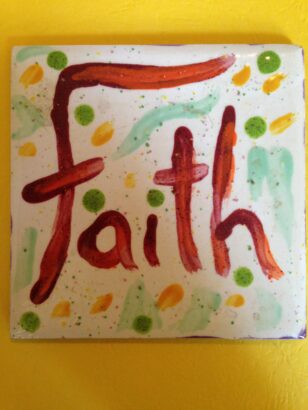
Many people have been asking me recently for advice on how to have faith. Not the religious kind, but the faith in dealing with everyday challenges.
One client of mine is undergoing IVF. She devoted her time, energy, and vacation days from her high-powered job so she could undergo the procedure. She and her husband really wanted it to work. After all that, she found out it was unsuccessful.
“The doctor says there is nothing wrong and that the chances that it will eventually work are in my favor,” she told me. “The thing is for now I am just so broken-hearted and disappointed. How am I supposed to keep going, when there’s no guarantee it will work?” she asked.
There was a philosopher named Epictetus who said, “There is only one way to happiness and that is to cease worrying about things which are beyond the power of our will.” This brilliant advice came from someone who was born a slave in 55 AD, but later in life became an advisor to not just one, but two Roman emperors!! The desire to influence things beyond our will is what still tortures many of us. We wish we could control things: our bodies, our feelings, our thoughts, other people, even our sports teams winning! But in fact, when we start to examine what we have control over we begin to see that we have much less than we thought. So where does that leave us?
“We don’t have control,” I told my client, “But we can shift to being willing to have things go well.” One of my favorite self-help gurus is Louise Hay. She offers the saying “I am open and receptive to all good.” What a beautiful intention. As soon as my client tried adopting a willingness to have things work out, and let go of her fears and insecurities, she felt at peace and more assured. She wasn’t giving up by stopping her worrying or feeling sad, she was just letting go. She was even more devoted to a good result, but without all the pressure she had been putting on herself. She looked to see the things she actually had some choice over and set to work exercising those. She decided she would do IVF again when she felt ready. She decided it was silly to think it was her fault. She was just going to intend things working out. Everything else was just a waste of her precious energy.
So much of the time we want a miracle, a change, an improvement. It’s when we release attachment to it that we start to have a different experience, which ends up creating a different result. I find that it’s easier to create from nothing than creating from fear, or from rules that feel constricting, or from what someone else tells us which at times can be a limiting thought. Some people call that faith. I say it is actually the process of creating, and it’s one of the most fulfilling ways I know to engage with life and get fabulous results.
Tuning Up Our Relationship with Money, Part I: “I am going to get rich by giving away money!”
One day Lily got it in her head that giving money away would be the coolest thing ever. She had me create an index card that said, “I’m going to get rich by giving away money.” She placed quarters on the edge of the card and set it out on the pavement outside our house and waited for the magic to begin. She spied on each passing person. Would they take the money? At first no one bit, but then people started to read the card, and when they realized she wanted them to have her money they started to cooperate and take the coins. Our next-door neighbor Heather asked Lily about what she was doing and Lily jubilantly explained how important it was to give money away and Heather nodded. Lily kept at it for a solid hour. She was elated! Her money was circulating out into the world. What could be better? She felt rich. She wasn’t trying to get anything. The goal was to give and see how far she could get doing that.
The next day a card came through the mail slot. In it was two dollars from Heather. The card said, “Dear Lily, Girls who give away money deserve to be rich.” This is prosperity at its best. Lily was focusing on giving rather than getting. Because of that she just focused on having fun. As a result, she got back twice as much as she gave away. She freaked out total strangers with her profound generosity. She made a connection with our neighbor. Best of all she really enjoyed the process the whole time, experimenting with giving and receiving. There are many ways to get more prosperous and one key is to realize how you already are.
Try this crazy experiment and let me know what happens when you play with giving away money. What comes back to you?
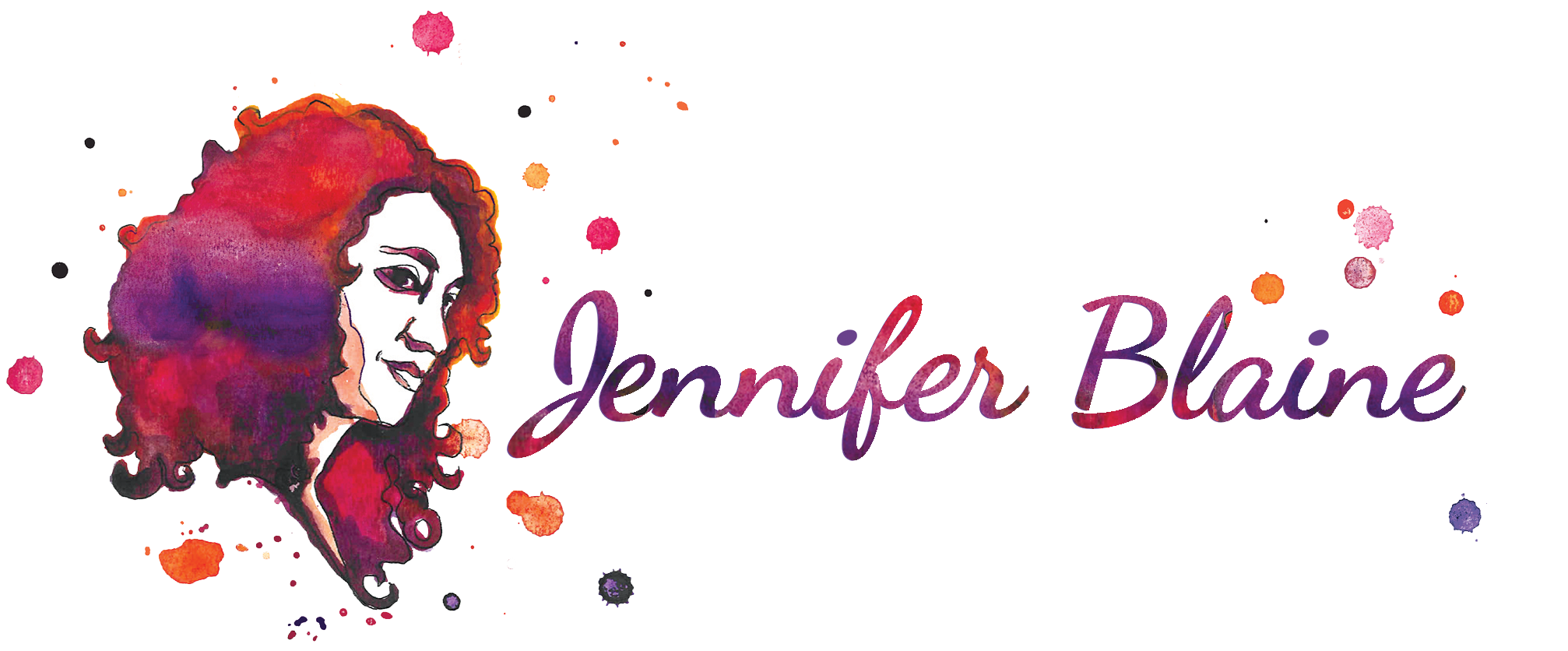

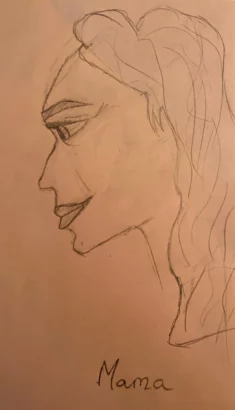 (Lily drew this picture of me New Year’s Eve)
(Lily drew this picture of me New Year’s Eve)

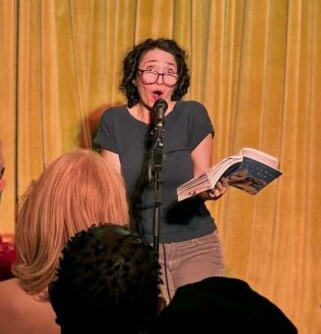
 Read full article
Read full article 